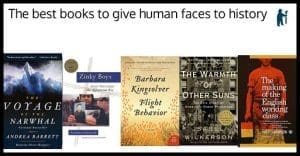
Laura Mason
Teaching Professor
Contact Information
- [email protected]
- On Leave: Fall 2024
- Curriculum Vitae
- Gilman 344
Research Interests: French Revolution, democracy and violence, cultural history and media, history and film, and French film
Education: PhD, Princeton University
As a historian of the French Revolution, I write about the convulsive transformation of French political culture in the last decade of the eighteenth century. In particular, my research encompasses: the revolutionary role of print culture and other forms of media; the shifting political fortunes of working people and popular radicals; the causes and consequences of state and popular violence; and the Revolution after Thermidor.
My most recent book, The Last Revolutionaries: The Conspiracy Trial of Gracchus Babeuf and the Equals (Yale UP, 2022), refracts the final years of the French Revolution through a controversial trial of 1797 to explain why France’s first republic collapsed less than a decade after its founding. Shifting emphasis from the early to the final years of the French Revolution makes clear that it was not the experience of terror that doomed the republic, as is so often claimed, but assaults on civil liberties and social welfare by the regime that followed: that of the Directory. Indeed, we cannot fully understand the nature and impact of the French Revolution without considering the critical and still poorly known years between the fall of Robespierre and the ascent of Napoleon. By focusing on the conspiracy and trial of Gracchus Babeuf, The Last Revolutionaries also redefines a man long famed as “the first modern communist” by situating him within the era that defined his life. As a figure ordinary in his experience of poverty and exclusion but extraordinary in his ambitions and reach, Babeuf illuminates the complex networks of possibilities and practical constraints, familial relations, and political alliances that shaped the lives of common people during the French Revolution.
My first book, Singing the French Revolution: Popular Culture and Revolutionary Politics in Paris, 1789-1799 (Cornell UP, 1996), examines the evolution of popular singing practices over the course of the revolutionary decade, charting the contested construction and gradual demobilization of a vitally important means of political expression. Singing the French Revolution insists that revolutionary culture was not only a pedagogical tool with which the powerful shaped “the people” but a means by which ordinary men and women claimed their rights as citizens and voiced their aspirations for a new world.
My current project tackles revolutionary terror by investigating atrocities committed in Nantes during the tenure of Jean-Baptiste Carrier (1793). Although most scholarship on Carrier is concerned with his 1794 trial for those atrocities– a trial that became a defining moment of the Thermidorian Reaction– I focus on the events in Nantes itself. I am particularly interested in Carrier’s relationships with local radicals and how Nantes’ status as a trans-Atlantic slaving port shaped local alliances and practices.
The second edition of The French Revolution: A Document Collection, which I co-edited with Tracey Rizzo, is published by Hackett (2022).
I am also editor of Imaginaries, an on-line review journal affiliated with H-France, which carries reviews of fictions and other creative representations of the French-speaking world. Imaginaries and a recent issue of French Historical Studies, co-edited with Flo Martin and entitled “Film & History: Reimagining the Francophone Archive,” are linked to my joint appointment with the Program in Film and Media Studies. My courses in Film and Media Studies apply my training as a cultural historian to contemporary media, encouraging students to treat films as primary sources that reflect the societies in which they are both produced and consumed. Subjects of special interest to me in film are French constructions of masculinity and race, the history of the city of Paris, and female authorship. For more information on my publications and courses in the Program in Film and Media Studies, see my webpage there.
Edited Special Issues
“Film and History: Reimagining the Francophone Archive,” co-edited with Flo Martin, French Historical Studies 46 #2 (May 2023)
“Forum: Thermidor and the French Revolution II.” French Historical Studies 39 #3 (Aug 2016).
“Forum: Thermidor and the French Revolution I.” French Historical Studies 38 #1 (Jan 2015).
Select Articles & Book Chapters
“Film and History: Reimagining the Francophone Archive,” co-authored with Flo Martin.French Historical Studies, 46 #2 (May 2023).
“Intersectional Audiard: Masculinity, Gender, Race,” in “L’Intersectionnalité au cinéma,” ed. Sabrina Bouarour & Héloïse Van Appelghem. Mise au Point 16 (oct-nov 2022).
“Gracchus Babeuf, les Égaux et la culture politique du Directoire,” Loris Chavanette (ed) Autorité et société sous le Directoire: une république en révolution (1795-1799). CNRS Editions: 2020.
“The Culture of Reaction: Demobilizing the People after Thermidor.” French Historical Studies 39 #3 (Aug 2016).
“Le moment thermidorien – un « laboratoire politique » ? A Conversation between Jean-Luc Chappey and Laura Mason.” H-France Salon vol. 8, Issue 11, #4 (2016).
“Thermidor and the Myth of Rupture.@ David Andress (ed) Oxford Handbook of the French Revolution. Oxford University Press, 2015.
“Introduction” to Forum I on “Thermidor and the French Revolution,” French Historical Studies 38 #1 (Jan 2015).
“Après la conjuration: le Directoire, la presse, et l’Affaire des Egaux,” Annales historiques de la Révolution française 354 (Dec. 2008).
“Never Was a Plot So Holy: Gracchus Babeuf and the End of the French Revolution,” Thomas Kaiser, Marisa Linton, Peter Campbell (eds) Conspiracy in the French Revolution. Manchester University Press, 2007.
The French Revolution: A Document Collection (Second Edition, Revised)
co-editor
Hackett Publishing Company ,
2023
The Last Revolutionaries: The Conspiracy Trial of Gracchus Babeuf and the Equals
author
Yale University Press ,
2022
Singing the French Revolution: Popular Culture and Revolutionary Politics in Paris, 1789-1799
author
Cornell University Press ,
1996
Imaginaries: Films, Fictions, and Other Representations of French-Speaking Worlds
Conspiracy of Equals with Laura Mason on The Dig, with Daniel Denvir
The best books to give human faces to history

